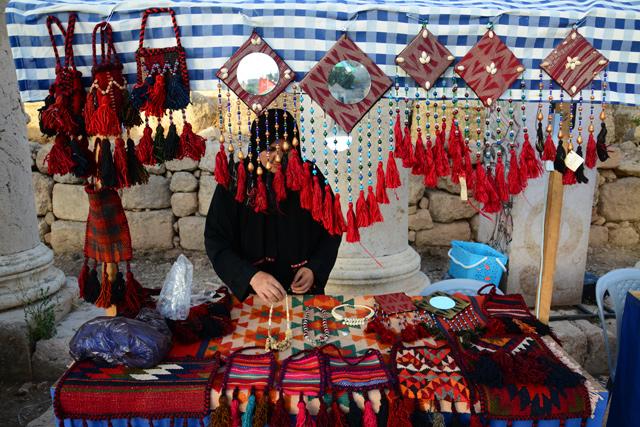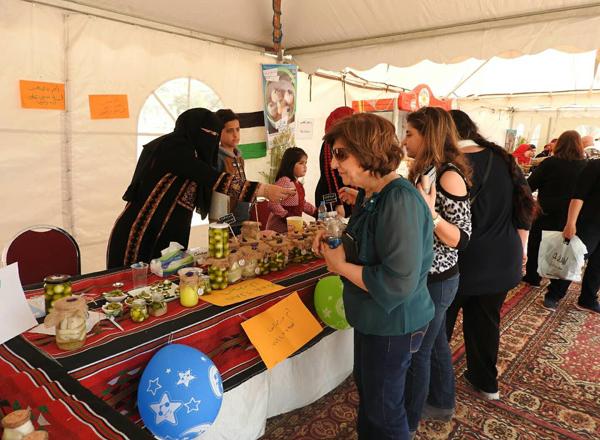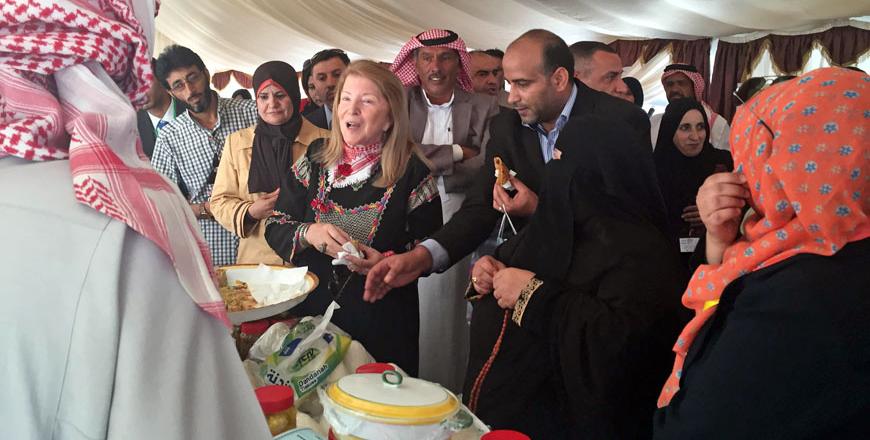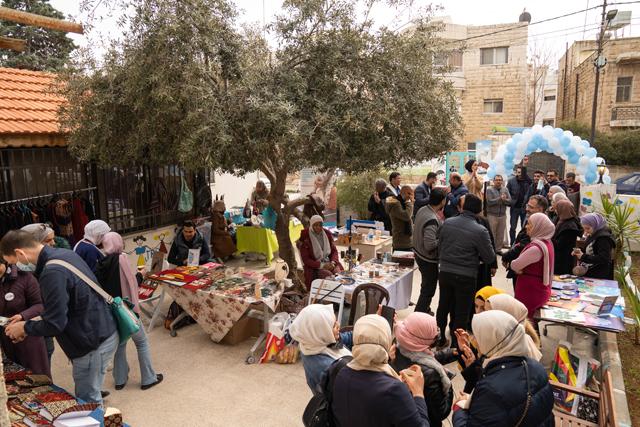You are here
Variety of home-made foodstuffs, objets d'art displayed at Jerash festival
By Ahmed Bani Mustafa - Jul 23,2018 - Last updated at Jul 23,2018

A woman displaying her home-made products at Jerash Festival of Culture and Arts on Friday (Photo by Amjad Ghsoun)
JERASH — Although Jerash Festival of Culture and Arts is most renowned for its cultural activities such as music concerts, it is also a considerable opportunity for the local community to showcase and sell artisanal products.
From foodstuff to handicrafts and embroidery, as well as traditional carvings, the kiosks and stalls provided by the Planning and International Cooperation Ministry’s Centre for Productivity Enhancement "Iradah" showcase the work of local societies' members, with a majority of women.
Coordinator of the Women Empowerment Unit (WFU) at Jerash Greater Municipality Iman Qiwar said that 14 women working from home were supported to join the festival.
The participants expressed delight over the opportunity, which helped them sell their creations while networking with new customers, according to Qiwar.
By training women and giving them the opportunity to participate in festivals and bazaars, WFU helps them to be productive members of their community, the coordinator said, citing the production of home-made dairies, pickles, jam and traditional garments.
One of the most purchased food item at the festival is labaneh jarashiyeh, a kind of strained yoghurt, which is a signature product of the town, 48km north of Amman.
After the Jerash festival, these women will have another opportunity to join the Grapes Festival, where they will sell grape products, Qiwar said.
Wadha Zreigat, head of Sfineh Society in Ajloun, said that there is a large turnout, noting that products were all sold out on Friday.
"The foodstuff we sell includes pastries of kishick [yoghurt, cracked wheat, onion, olive oil and turmeric], thyme, goat cheese, and zalabia, as well as apricot jam, Zaatar and Sumac," Zreigat said.
"We had the chance to become more known and meet with officials and decision makers to whom we explained challenges that our society faces," she continued.
Zreigat said that she has been attempting to establish a "production kitchen" but was challenged by authorities, who blamed her of only accepting her relatives in the society.
She claimed however that the whole inhabitants of Sfineh village (2,000 people) belong to one tribe: the Zreigat.
The exhibitions also include a bazaar organised by the Department of Correctional and Rehabilitation Centres to present products made inmates.
The department has been training prisoners in a variety of trades and professions, so ad to support them through educational, training and technical programmes, in cooperation with experts and trainers from the Public Security Department and the vocational training centres.
After completing their training and mastering a profession, prisoners are given certificates stamped by the Vocational Training Corporation, with does not mention their former status of prisoners.
The certificates enable them to earn an income after serving their terms, with the aim of helping them avoid falling into the “mistakes of the past”, according to the organisers.
Related Articles
JERASH — Thousands of visitors on Friday flocked to the northern city of Jerash, this time to explore its first Labaneh Festival.
AMMAN — Marking the Kingdom’s 69th Independence Day, a festival held this weekend celebrated a must-have ingredient of Jordanian cuisine — j
AMMAN — A bazaar organised by the Jesuit Refugee Service (JRS) Jordan on Sunday brought together 35 participants including refugees from the














